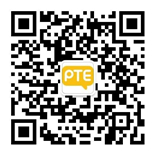2020-06-30
PTE写作题型中SWT备考可以从从各路大神的经验,找到关键词句,用一些连词衔接起来,但是一定要注意单词拼写和语法,不要在小的方面丢分!下面就和小编为大家总结very和too辨析讲解,一起学习吧。
Look at these two sentences:
我们来看这两个句子
The coffee is very hot, but I can drink it.
这个咖啡非常热,但是我能喝。
The coffee is too hot. I can’t drink it.
这个卡菲尔太热了,我喝不了。
We use VERY and TOO before an adjective.
我们在形容词之前使用very和too。
Very + adjective … and… Too + adjective
It both sentences the adjective is hot so we say very hot and too hot.
以上这两个句子中的形容词就是hot,所以我们说very hot 和 too hot。
What is the difference in meaning?
在意思上它们有什么区别呢?
Very hot means it is hot, but possible to drink.
very hot的意思是它很热,但是还是可以喝的。
Too hot means it is NOT possible to drink, probably because I will burn myself.
too hot的意思是并不能喝,可能是因为会烫坏自己。
Very means a high degree or a very large amount.
very就是意味着很高程度或者很大量。
Too normally has a negative meaning.
too通常有否定意义。
Let’s look at another example:
我们再来看个例句:
The fridge is very heavy, but Mike can lift it.
冰箱很重,但迈克能把它抬起来。
Here we are saying it is difficult for Mike but it is still possible for him to lift it.
在这里我们说这对迈克来说很难,但他仍然有可能举起它。
The fridge is too heavy. Steve can’t lift it.
冰箱太重了。史蒂夫举不起来。
Here we are saying it is NOT possible for Steve to lift it, it is impossible because it is too heavy for him.
这里我们要说的是史蒂夫不可能举起它,这是不可能的,因为它对他来说太重了。
You can see that in this sentence TOO has a negative meaning again.
你可以看到在这个句子中TOO有一个否定的意思。
One more example:
再举一个例子:
It was very cold, but we played football anyway.
天气很冷,但我们还是去踢足球了。
Yes, it was difficult but still possible. My legs were frozen but we still had a good time.
是的,这是困难的,但仍然是可能的。我的腿冻僵了,但我们仍然玩得很开心。
It was too cold to play football, so we stayed at home.
天太冷了,不能踢足球,所以我们呆在家里。
Again TOO has a negative meaning. Too cold means it was excessively cold so it was notpossible to play football.
Too再次表示否定的含义,too cold的意思是天气太冷了,不能踢足球了。
Note: we do NOT say… it was verymuchcold… or toomuchcold.
提示:我们不说it was verymuchcold… 或者toomuchcold.
These are NOT correct in English.
这在英语里是不正确的。
Very + Adverb 副词
After VERY we can use an adverb. There is a verb before these so the structure is:
VERY之后我们可以用副词。在这些之前有一个动词,所以结构是:
Verb + Very + Adverb
动词 very 副词
Our example sentences:
例句:
She ran very quickly and won the race. She didn’t just run quickly… she ran VERY quickly.
她跑得很快,赢得了比赛。她不仅跑得很快,而且跑得非常快。
We played very badly and lost.
我们踢得很糟糕,输了。
Note: it is better to use another adverb instead of very + adverb.
注意:用其他副词代替very +更好。
For example, instead of saying very badly, you could say terribly.
例如,与其说very bad,你还不如说terrible。
We played terribly and lost.
我们踢得糟透了,输了。
Too + Adverb 副词
We can also create a sentence using TOO instead of VERY.
我们也可以用TOO来代替VERY来造句。
Verb + Too + Adverb
动词 too 副词
He drove too quickly and had an accident.
他开车太快,出了车祸。
I arrived too early and nobody was there.
我到得太早了,那里一个人也没有。
He speaks too quietly. I can’t hear what he says.
他说话声音太小了。我听不见他在说什么。
You can see again that TOO usually has a negative meaning or result.
你可以再次看到,它通常也有消极的意思或结果。
He drove too quickly… and the negative result of this… he had an accident.
他开得太快了……这带来了负面的结果……他出了车祸。
I arrived too early… and the negative result of this… I had nobody to talk to.
我来得太早了……而这带来的负面结果是……没有人可以跟我说话。
以上就是小编为大家整理的关于PTE考试词汇语法辨析讲解,希望对大家有所帮助。更多PTE考试内容、PTE网络课程等问题可以咨询我们。

